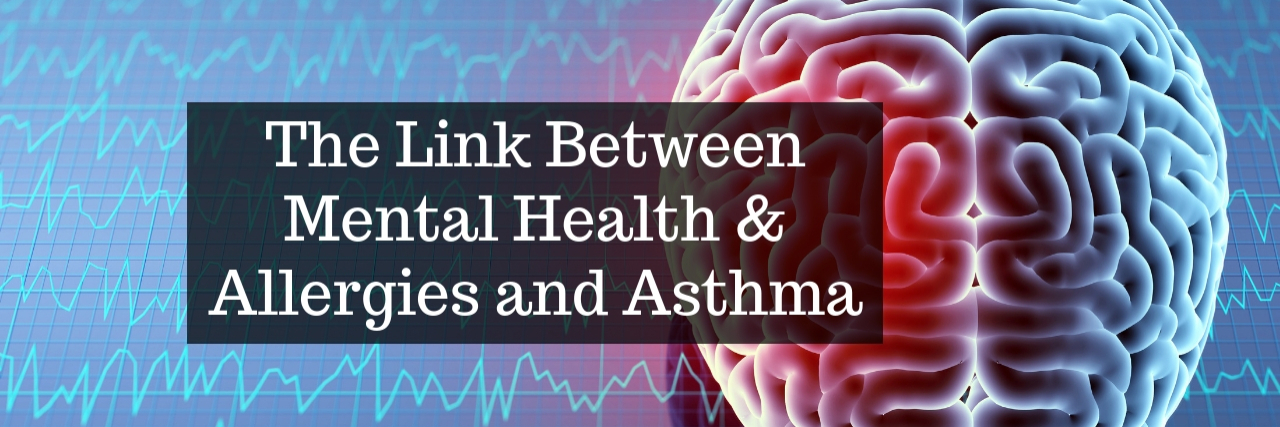Study Supports Theory That Your Immune System and Mental Health May Be Related
The Frontiers in Psychiatry journal published a new research study that found people with certain allergies or asthma were 1.66 times more likely than the general public to develop a mental health condition. The study, which was conducted by researchers in Taiwan, adds additional evidence to the growing theory that immune system activation and mental illness may be strongly linked for some people.
Led by researcher Nian-Sheng Tzeng, the study followed more than 180,000 patients between 2000 and 2015 who were newly diagnosed with one of three allergic conditions: bronchial asthma, seasonal allergies or the itchy skin condition eczema. At the conclusion of their research, Tzeng and his colleagues found 10.8 percent of the study subjects with an allergy or asthma developed a psychiatric disorder versus only 6.7 percent of the control group who did not have allergies.
May 1 is #WorldAsthmaDay A new study published in @FrontPsychiatry is the first to find a significant link between common allergic diseases such as #asthma and #hayfever and a broad spectrum of psychiatric disorders https://t.co/cmRtOn3w1k
— Frontiers (@FrontiersIn) April 30, 2018
Those with asthma were more likely to develop psychiatric disorders such as dementia, anxiety, depression, eating disorders, bipolar disorder, sleep disorders and psychotic disorders. Those with seasonal allergies also had a higher risk for similar conditions, but a lower risk for dementia. However, study participants who had eczema were less likely to develop psychiatric disorders overall.
The increased risk of developing a mental illness if you have allergies or asthma is likely because of inflammation, the chemical response your immune system uses to fight off infections. Inflammation is also thought to play a role in mental illness. These study results build on a growing body of knowledge about the connection between the immune system, inflammation and mental health.
Immune system activation and inflammation are part of your natural stress response. This immune response was critical for your ancestors, Carmine Pariante, professor of biological psychiatry and head of the stress, psychiatry and immunology laboratory & section of perinatal psychiatry at King’s College in London, explained, but is less important now thanks to modern medicine.
“Most stressors hundreds of years ago were physical. It would involve fights with a predator or a fight with another tribe,” Pariante told The Mighty. “You want your immune system to be activated to protect you from infections.” He continued:
Most of the time in modern society, stress wounds you psychologically. But the [immune] mechanism is still there so you have this pathological condition or abnormal condition where you have chronic psychosocial stress that activates your immune system on a chronic level. Then the immune system that’s chronically activated affects the brain and imbues change in emotions and behavior that basically resembles depressive symptoms.
According to Pariante, previous research discovered that about one-third of patients with depression — the same percentage who don’t respond to antidepressant medications — have a high level of immune system activation that may be the cause of their depression. This suggests anti-inflammatory treatment options should be explored for people who don’t respond to antidepressants, though additional research is needed.
The likely reason that only a portion and not all of depression is caused by inflammation comes down to a genetic predisposition for an activated immune system that’s triggered by stressful life events, especially early in childhood. However, it’s hard to untangle which came first between mental health and physical health conditions because living with a chronic illness can be very stressful on its own.
While the connection between mental health and inflammation could inform treatment for those with allergies, Tzeng’s 2018 study serves a larger purpose. It encourages doctors to treat everyone from a whole-body perspective. After all, your physical and mental health may not be that different when you look at it on a biological level.
“It makes mental illness more, as it should be, similar to physical illnesses with the idea that things are not just the mind,” Pariante told The Mighty. “In fact, [mental illnesses] are not even all in the brain but they’re everywhere in the body. … From a cultural-societal point of view [this knowledge] can help with stigma and with a sense of inclusion.”
Header Getty Image via Iaremenko.

